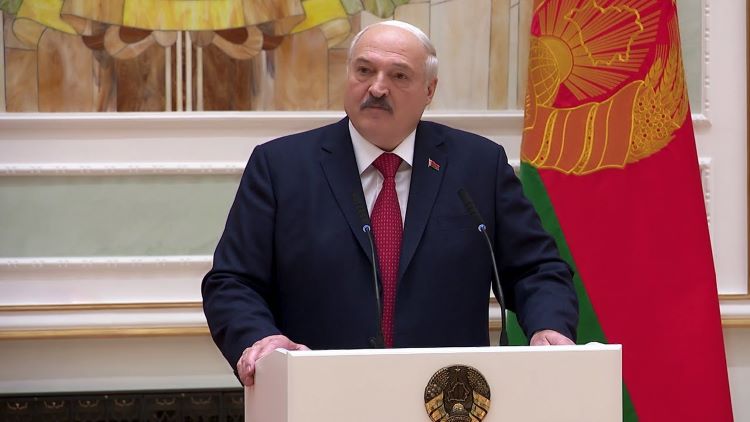Eduardo González
The Spanish Government is “aware” of the political decisions taken by Aleksander Lukashenko’s regime to deprive Belarusian expatriates of nationality accused of “extremist” activities, a problem that is being addressed within the European Union to achieve a coordinated position between Member States.
This is how the Ministry of Foreign Affairs responded to a written question from deputy Jordi Salvador i Duch, of the Republican Parliamentary Group, about the “actions planned to solve the problem faced by the Belarusian community in Spanish territory to renew their residence documents, after the regulatory changes approved in his country.”
According to the parliamentary question, registered in early December 2023, the Lukashenko Government has introduced a series of legislative and executive changes in order to limit the exercise of fundamental rights since Russia’s invasion of Ukraine. One of these legislative changes is the one that allows the deprivation of nationality of Belarusian nationals residing abroad who have been sentenced by court for participating in activities declared “extremist”, which represents “an authentic form of political persecution against dissent and undermining.” respect for freedom of expression.”
In this regard, the United Nations High Commissioner for Human Rights has already warned that this measure inevitably carries a risk of rendering many citizens stateless “given the arbitrary nature of what may be considered ‘extremist’.” In November 2023, the Belarusian Government already considered more than 3,500 individuals as “extremist”, as well as thousands of online contents that bother the regime.
Likewise, in September 2023, by Decree, the Belarusian authorities changed the procedures and requirements for the renewal of the documentation of their own citizens abroad. Depending on the new regulations, those who want to issue, exchange or renew their identity documents must necessarily travel to Belarusian territory, since Belarusian Institutions abroad have stopped carrying out these procedures. This new rule, according to ERC, represents “a new violation of human rights and international law – the Vienna Convention on Consular Relations of 1963 – with the objective “of persecuting dissent.”
“These legislative changes have posed a real problem for the 6,800 people of Belarusian nationality who, according to the INE, are registered in Spain, since, “with the new regulations, when the residence accreditation documents expire they are forced to move to Belarus to renew his passport, with the risk to his personal safety that this entails given the current political climate in his home country.”
ERC also recalls that some Belarusian citizens “in possession of residence permits and with this problem” have been offered asylum application procedures. However, this formula “involves long procedures” and is characterized by a low recognition rate, which is why other provisional alternatives have been proposed “and while the current situation and political climate in the area lasts”, such as the renewal of the permits in Spain “despite having expired Belarusian documentation.”
For all these reasons, the Republican Group asks the Government if it is aware of “this problem that the Belarusian community encounters in State territory”, if it plans to establish some protection mechanism for the Belarusian community so that the regulatory changes made by the Government of Minsk do not prevent the renewal of residence and work permits in Spanish territory and if it is possible, in light of the political situation derived from the war, establish a procedure for the renewal and obtaining of these same permits from a “benevolent examination” of applications without the need to resort to asylum procedures.
In its response, sent on February 12 (more than two months after the question was registered), the Executive assures that it is “aware of the situation in which the Belarusian community finds itself abroad as a result of the legislative measures taken by the Belarusian authorities” and adds that “this is an issue that is also being studied at the European Union level, where approaches are being shared in relation to the issue.” “Specifically, this matter has been raised by the European Commission in various Council working groups with a view to trying to achieve a coordinated position between Member States,” the response concludes.







